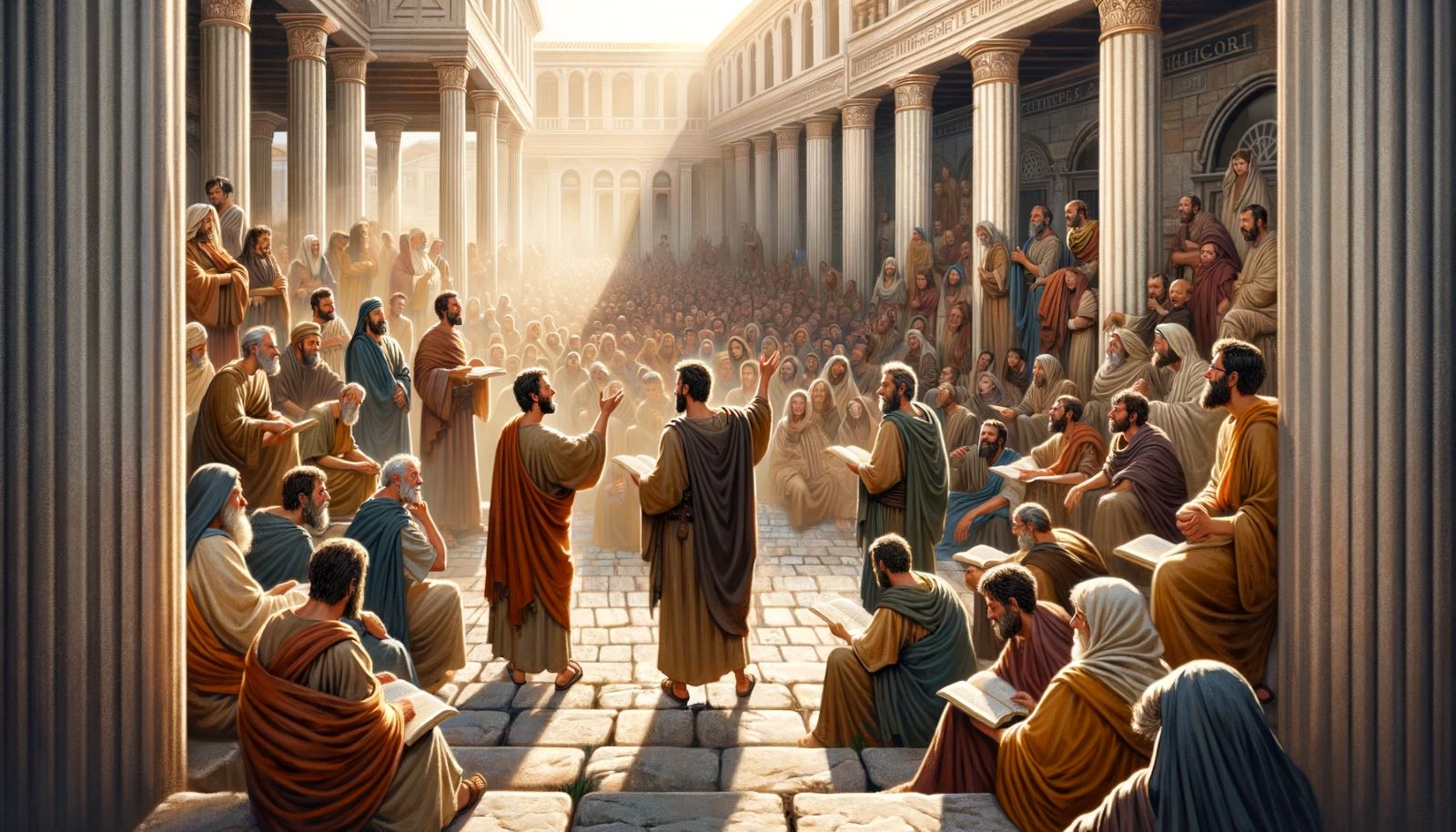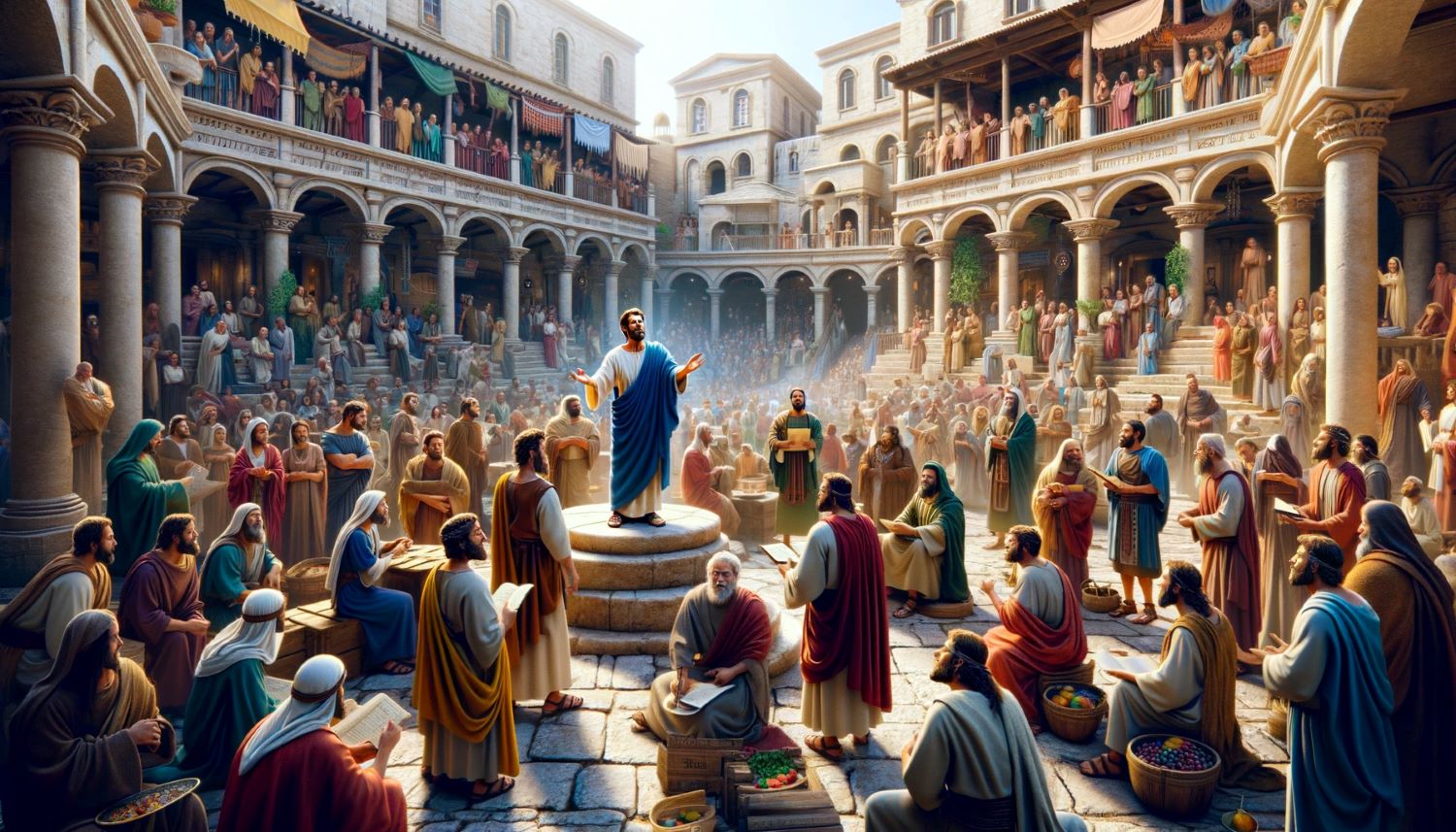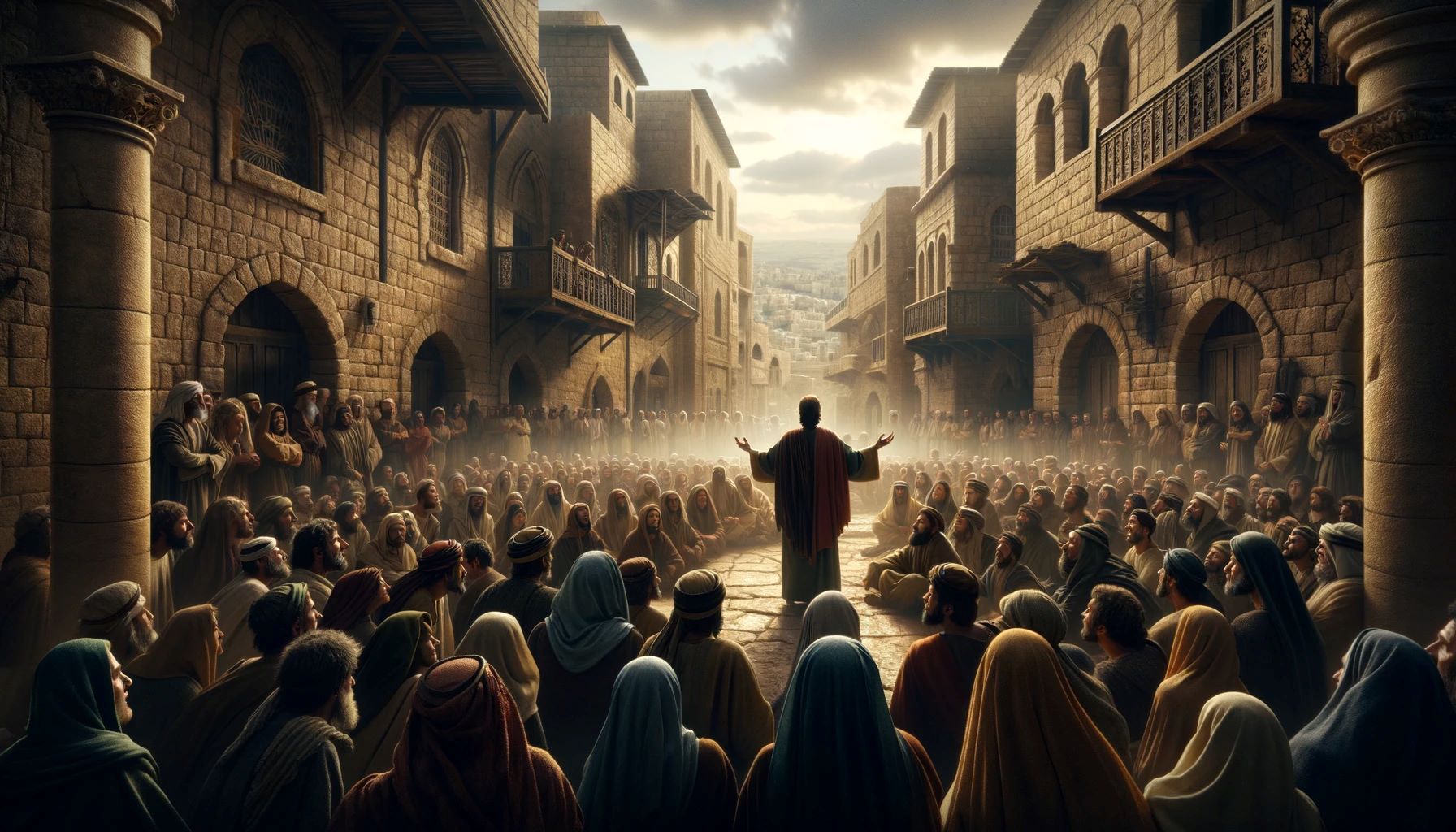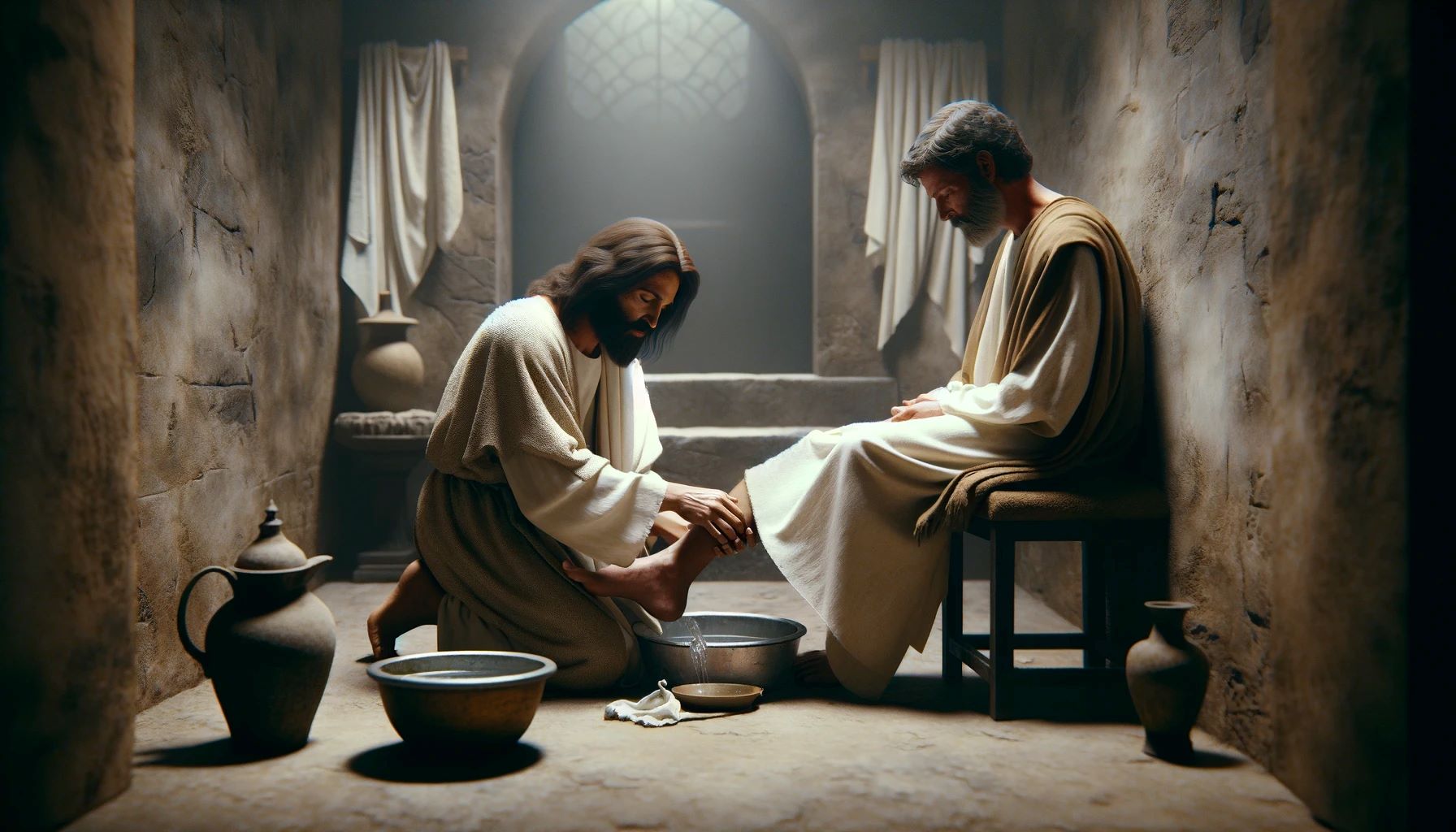Home>Bible Facts>What Power Did Jesus Pass On To His Apostles
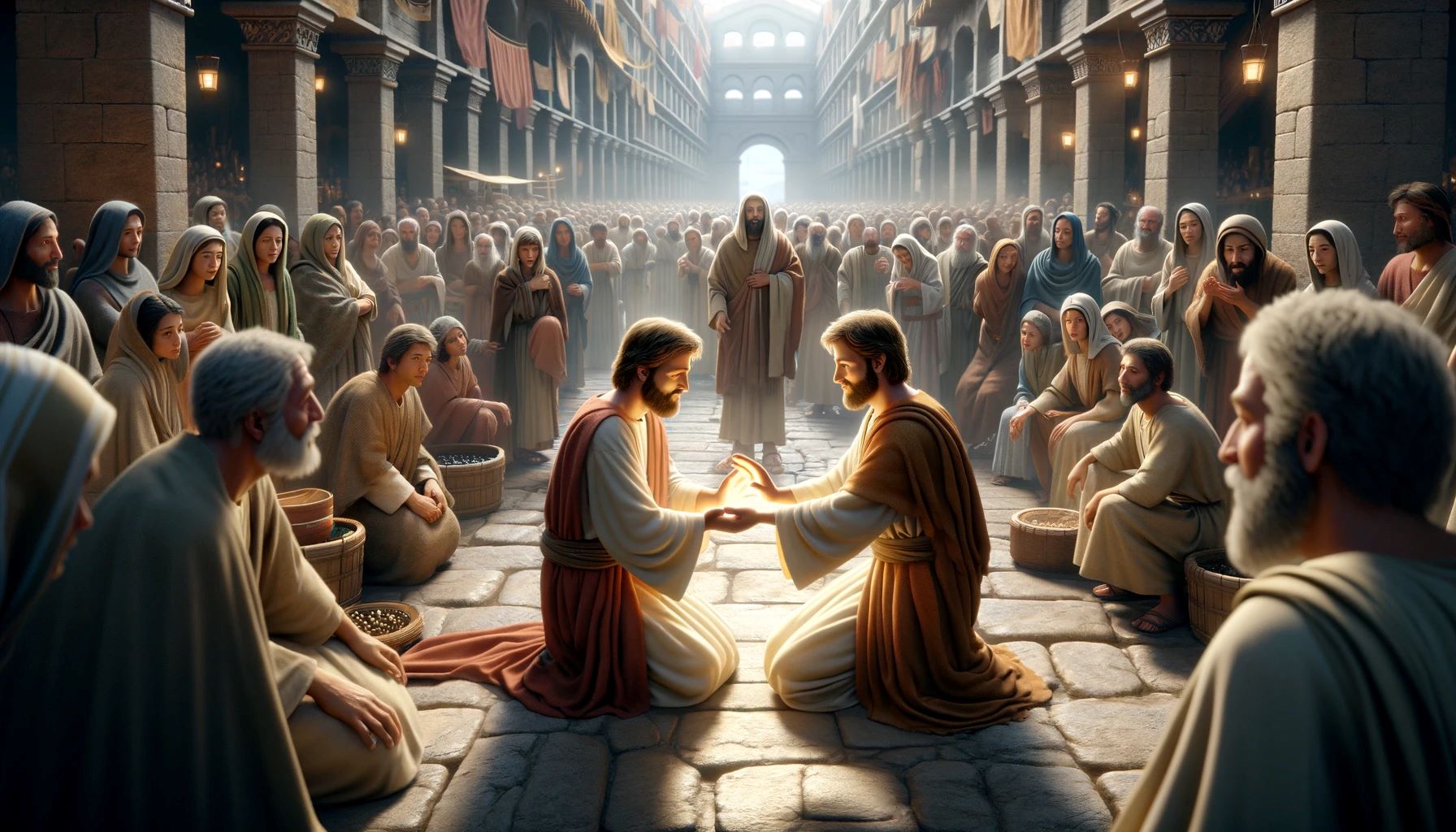

Bible Facts
What Power Did Jesus Pass On To His Apostles
Published: February 22, 2024
Peter Smith, Editorial Director at Christian.net, combines deep insights into faith, politics, and culture to lead content creation that resonates widely. Awarded for his contributions to religious discourse, he previously headed a major organization for religious communicators, enhancing dialogue on faith's societal impacts.
Discover the fascinating Bible facts about the power that Jesus passed on to his apostles. Explore the significance of this transfer of authority and its impact on Christianity. Unlock the secrets of this pivotal moment in religious history.
(Many of the links in this article redirect to a specific reviewed product. Your purchase of these products through affiliate links helps to generate commission for Christian.net, at no extra cost. Learn more)
Table of Contents
Introduction
When considering the profound impact of Jesus Christ on the world, it is essential to explore the power and authority He passed on to His apostles. This transfer of power was a pivotal moment in the establishment of the Christian faith and the spread of its teachings. Understanding the nature of this authority provides insight into the early foundations of Christianity and the enduring legacy of Jesus' teachings.
The authority bestowed upon the apostles by Jesus was not merely symbolic; it carried tangible significance that shaped the course of Christian history. This authority encompassed various aspects, including the ability to forgive sins, the power to heal and cast out demons, the commission to preach the gospel, and the ability to bind and loose. Each facet of this authority played a crucial role in the apostles' mission to propagate the teachings of Jesus and establish the early Christian church.
As we delve into the specifics of the authority passed on to the apostles, it becomes evident that this transfer of power was a transformative moment in the narrative of Christianity. It marked the transition from Jesus' earthly ministry to the apostles' role as torchbearers of His message, charged with the monumental task of spreading the gospel to all corners of the world. This transfer of authority underscores the profound trust and responsibility placed upon the apostles to continue the work that Jesus initiated during His time on earth.
The significance of this transfer of power extends beyond the historical context, resonating deeply with the core tenets of the Christian faith. It serves as a testament to the continuity of Jesus' mission and the enduring impact of His teachings. By empowering His apostles with such authority, Jesus ensured that His message would transcend time and resonate across generations, shaping the beliefs and practices of countless followers throughout history.
In the subsequent sections, we will explore in detail the specific facets of the authority passed on to the apostles, shedding light on the profound implications of this transfer of power and its enduring relevance in the Christian faith. Through this exploration, we gain a deeper understanding of the pivotal role played by the apostles in shaping the early Christian church and perpetuating the teachings of Jesus Christ.
The Authority to Forgive Sins
One of the remarkable aspects of the authority passed on to the apostles by Jesus was the power to forgive sins. This authority was not merely symbolic but held profound significance in the spiritual realm. In the Gospel of John, Jesus explicitly conferred this authority upon the apostles, stating, "If you forgive anyone's sins, their sins are forgiven; if you do not forgive them, they are not forgiven" (John 20:23, NIV).
The ability to forgive sins was a transformative privilege that underscored the apostles' role as conduits of divine mercy and reconciliation. It signified their capacity to offer absolution and spiritual healing to those burdened by the weight of transgressions. This authority was not wielded lightly but carried the weight of profound responsibility, requiring the apostles to discern and administer forgiveness in accordance with the teachings of Jesus.
The significance of this authority to forgive sins reverberates throughout the Christian faith, emphasizing the pivotal role of forgiveness in the spiritual journey of believers. By entrusting the apostles with this authority, Jesus established a framework for the practice of confession and absolution within the Christian community, fostering a culture of repentance and reconciliation.
Furthermore, the authority to forgive sins exemplified the transformative power of grace and compassion, serving as a tangible expression of God's boundless love for humanity. Through the apostles' ministry of forgiveness, individuals were offered the opportunity to experience spiritual renewal and liberation from the shackles of guilt and sin.
The enduring relevance of this authority is evident in the sacrament of reconciliation practiced in many Christian traditions, where the clergy, as successors to the apostolic ministry, continue to exercise the authority to absolve sins. This continuity reflects the enduring impact of the authority passed on to the apostles by Jesus, perpetuating the legacy of divine forgiveness throughout the centuries.
In essence, the authority to forgive sins bestowed upon the apostles by Jesus exemplifies the profound depth of His teachings on forgiveness and redemption. It underscores the transformative power of divine mercy and the apostles' pivotal role in extending God's forgiveness to humanity, shaping the spiritual landscape of the Christian faith for generations to come.
The Power to Heal and Cast Out Demons
The authority passed on to the apostles by Jesus encompassed the remarkable power to heal the sick and cast out demons. This extraordinary ability was not merely a display of miraculous prowess but held profound significance in the context of spiritual healing and liberation. Throughout the Gospels, numerous accounts depict Jesus empowering His apostles to perform miraculous acts of healing and deliverance, thereby extending the transformative impact of His ministry beyond His immediate presence.
The power to heal the sick and cast out demons was a tangible manifestation of divine compassion and restoration. It exemplified the apostles' role as instruments of God's healing grace, equipped to alleviate suffering and confront the forces of spiritual oppression. This authority was not wielded for personal gain or acclaim but was rooted in the selfless mission of bringing relief and wholeness to those in need.
The apostles' ministry of healing and deliverance resonated deeply with the core tenets of Jesus' teachings, emphasizing the inherent value of every individual and the imperative to alleviate human suffering. Their acts of healing and deliverance served as compelling demonstrations of God's power at work, instilling hope and faith in those who witnessed these miraculous interventions.
Furthermore, the power to heal and cast out demons underscored the apostles' role as ambassadors of God's kingdom, actively engaging in spiritual warfare against the forces of darkness. Their authority to confront and expel demonic influences reflected the triumph of divine light over the forces of evil, offering a glimpse of the ultimate victory secured through Jesus' redemptive work.
The enduring relevance of this authority is evident in the continued emphasis on healing and deliverance within Christian communities, where the ministry of spiritual restoration remains a central aspect of pastoral care and outreach. The legacy of the apostles' power to heal and cast out demons endures through the ongoing mission of the church to bring healing and liberation to those in physical, emotional, and spiritual distress.
In essence, the authority to heal the sick and cast out demons bestowed upon the apostles by Jesus exemplifies the transformative impact of divine compassion and restoration. It underscores the apostles' pivotal role in extending God's healing grace to humanity, perpetuating the legacy of miraculous intervention and spiritual liberation throughout the centuries.
The Commission to Preach the Gospel
The commission to preach the gospel stands as a cornerstone of the authority passed on to the apostles by Jesus. This charge, articulated in the Gospel accounts and the Book of Acts, encapsulates the apostles' pivotal role as heralds of the transformative message of salvation and redemption. Jesus, before His ascension, entrusted the apostles with the monumental task of proclaiming the gospel to all nations, thereby initiating a global movement that would shape the course of human history.
The commission to preach the gospel was not a mere directive but a profound calling that underscored the apostles' role as ambassadors of God's kingdom. It signified their mandate to proclaim the good news of salvation, inviting individuals to embrace the transformative message of hope and reconciliation. This charge resonated deeply with the core tenets of Jesus' teachings, emphasizing the universal scope of His redemptive mission and the inclusive invitation extended to all humanity.
The apostles' obedience to this commission catalyzed a remarkable expansion of the Christian faith, as they fearlessly ventured into diverse cultural and geographical contexts to disseminate the gospel message. Their unwavering commitment to this charge fueled the rapid spread of Christianity, transcending linguistic and cultural barriers to reach individuals from all walks of life.
Furthermore, the commission to preach the gospel exemplified the apostles' role as custodians of divine revelation, entrusted with the sacred task of transmitting the teachings of Jesus to future generations. Their faithful proclamation of the gospel laid the groundwork for the establishment of Christian communities, fostering a collective identity centered on the redemptive work of Jesus Christ.
The enduring relevance of this commission is evident in the ongoing global mission of the Christian church to proclaim the gospel to diverse cultures and societies. The apostles' unwavering dedication to this charge serves as a timeless model for contemporary believers, inspiring a steadfast commitment to sharing the transformative message of God's love and grace with the world.
In essence, the commission to preach the gospel bestowed upon the apostles by Jesus exemplifies the enduring impact of their missionary zeal and unwavering commitment to advancing the kingdom of God. It underscores the apostles' pivotal role in perpetuating the legacy of the gospel message, shaping the spiritual landscape of the Christian faith for generations to come.
The Ability to Bind and Loose
The authority to bind and loose, conferred upon the apostles by Jesus, holds profound significance in the context of spiritual governance and divine authority. This remarkable privilege, articulated in the teachings of Jesus, empowered the apostles to exercise discernment and decision-making in matters of spiritual significance, thereby shaping the ethical and doctrinal framework of the early Christian community.
The concept of binding and loosing, rooted in Jewish rabbinic tradition, denoted the authority to declare what is lawful or unlawful based on the interpretation of religious law. Jesus, in entrusting this authority to the apostles, extended the scope of their role beyond mere proclamation to active engagement in guiding and shepherding the burgeoning Christian community.
The authority to bind and loose encompassed the apostles' capacity to make decisions that carried spiritual weight, including matters of doctrine, discipline, and ethical conduct within the Christian community. This authority was not wielded in isolation but was exercised in accordance with the guidance of the Holy Spirit and the foundational teachings of Jesus.
Furthermore, the apostles' exercise of this authority reflected their role as stewards of divine wisdom, entrusted with the responsibility of preserving the integrity of Christian doctrine and guiding the faithful in matters of moral discernment. Their decisions regarding doctrinal interpretation and ethical standards carried significant implications for the spiritual well-being of the early Christian believers.
The enduring relevance of this authority is evident in the ongoing role of spiritual discernment and governance within Christian traditions, where the leadership continues to exercise the authority to make decisions that shape the doctrinal and ethical landscape of the faith community. The apostles' legacy of binding and loosing serves as a foundational principle for the governance and spiritual oversight of the church, emphasizing the enduring impact of their authority in shaping the trajectory of Christian belief and practice.
In essence, the authority to bind and loose bestowed upon the apostles by Jesus exemplifies the profound depth of their role as spiritual overseers and custodians of divine truth. It underscores the apostles' pivotal role in guiding the early Christian community and shaping the ethical and doctrinal framework of the Christian faith, perpetuating the legacy of their authority in matters of spiritual governance and discernment.
Read more: What Did Jesus Commission His Apostles To Do
Conclusion
In conclusion, the authority passed on to the apostles by Jesus encompassed a multifaceted mandate that transcended mere symbolic significance, shaping the very fabric of the early Christian church and perpetuating the enduring legacy of His teachings. From the authority to forgive sins to the power to heal and cast out demons, from the commission to preach the gospel to the ability to bind and loose, each facet of this authority underscored the apostles' pivotal role as torchbearers of Jesus' transformative message.
The authority to forgive sins exemplified the apostles' capacity to extend divine mercy and reconciliation, fostering a culture of repentance and spiritual renewal within the Christian community. This enduring legacy of forgiveness continues to resonate through the sacramental practices of confession and absolution, perpetuating the apostolic ministry of reconciliation across generations.
Likewise, the power to heal the sick and cast out demons showcased the apostles' role as instruments of God's healing grace, offering tangible demonstrations of divine compassion and restoration. This authority continues to inspire the ministry of spiritual healing and deliverance within Christian communities, reflecting the enduring impact of the apostles' miraculous interventions.
Furthermore, the commission to preach the gospel propelled the apostles into a global mission of proclaiming the transformative message of salvation to all nations, laying the foundation for the remarkable expansion of the Christian faith. This enduring charge serves as a timeless model for contemporary believers, inspiring a steadfast commitment to sharing the transformative message of God's love and grace with the world.
Lastly, the authority to bind and loose empowered the apostles to exercise discernment and decision-making in matters of spiritual significance, shaping the ethical and doctrinal framework of the early Christian community. This foundational principle continues to guide the governance and spiritual oversight of the church, emphasizing the enduring impact of the apostles' authority in shaping the trajectory of Christian belief and practice.
In essence, the authority passed on to the apostles by Jesus stands as a testament to the continuity of His mission and the enduring impact of His teachings. By empowering His apostles with such authority, Jesus ensured that His message would transcend time and resonate across generations, shaping the beliefs and practices of countless followers throughout history. The apostles' faithful stewardship of this authority laid the groundwork for the establishment and perpetuation of the Christian faith, leaving an indelible mark on the spiritual landscape of humanity.








